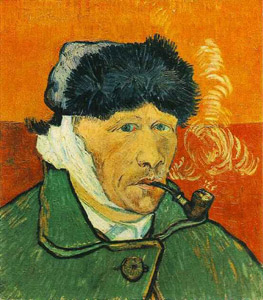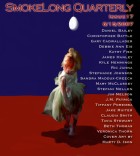My wife flies in her dreams. I never have. What kind of people do?—and what kind of people don’t?
That’s a good question. I know people who both do and don’t, but I’ve never figured out any correlation. Jung and Freud may have some theories. One interesting thing is that different dreamers seem to have different methods. For some, it’s like swimming on air. Some people flap their arms. Others just jet ahead. My artist friend Sally describes it as pushing herself up levels. I’m more of a glider, myself.
“Deep zoo madness.” Wow, that’s great. What’s the cure?
I’m actually borrowing the term “Deep Zoo” from the writer Rikki Ducornet, whom I’ve been lucky enough to study under. The concept, as I understand it, refers to the deep potencies available to us individually. These are our sympathies and powers that come to us through deep reverery or sometimes through dream, brimming forth and recurring in all of their magic and power and terror. They don’t have to appear as actual beasts, but for me they often do, maybe because of my rural childhood and the daily presence of animals.
Your Deep Zoo is a really personal landscape, and to bring it out into the open, to share it with someone else, can lead to greater intimacy. But the act also carries potential risks and consequences. I think that’s what my narrator is struggling with, when to let the “crazy” out in a young relationship, and how far to go when you do.
In terms of a cure, I’m not aware of any. My advice to a writer or artist is to embrace the madness, let it inform your work. I remember reading somewhere that if you have a skeleton in your closet, take it out and dance with it. That’s good advice, I think.
Your list of publications reads like my list of rejections. What advice can you give me to change my fortunes?
Keep writing. I think its best to cultivate a weird mix of meek humility and stubborn confidence. Send out some submissions. When the rejections come in, go have a beer or jog around the block or whatever you need to do, then go back to the desk and keep working. Or get an accounting degree. What do I know?
What does a writer need with a Ph. D.?
Absolutely nothing, really. For me—and don’t tell my advisor this—graduate school has been a way to buy time for writing. The focused study of literature and a community of fellow writers and readers has also been helpful. And then there’s the practical element of it. Very few of us are going to make a living solely through our writing, which means we have to get day jobs. I like teaching college students, and that calls for academic credentials.
The titles of the stories in this issue wowed me and got me thinking about the value of the great title. What are some great titles—for novels, stories, movies, albums, CDs, and the like? And what is the worst title you’ve ever encountered?
A very interesting question. I recently read Adam Johnson’s novel, Parasites Like Us, a good title. I like DeLillo’s White Noise. Garcia Marquez’s Love in the Time of Cholera or his new Memories of My Melancholy Whores. Many from Dr. Seuss, especially Marvin K. Mooney, Will You Please Go Now!. I also like titles that show up in the text of the work. St. Elmo’s Fire and Chasing Amy are a couple of movies that come to mind in that vein. By the way, SmokeLong isn’t bad. Worst title? I’m not sure about that. I’ll say The Communist Manifesto. It’s so descriptive and bland. It needs something catchier.



 Included in the price of SmokeLong Fitness:
Included in the price of SmokeLong Fitness: